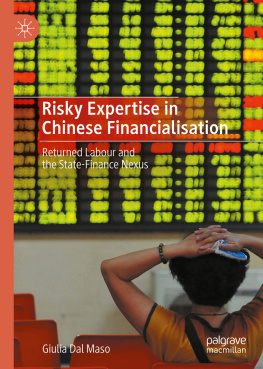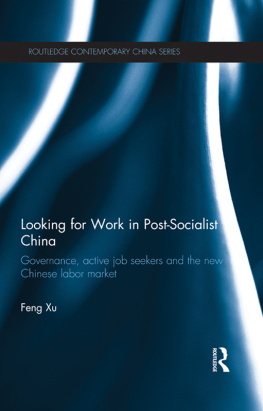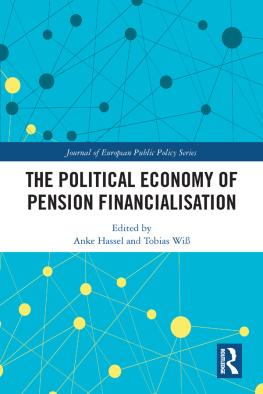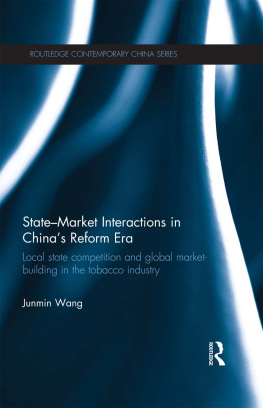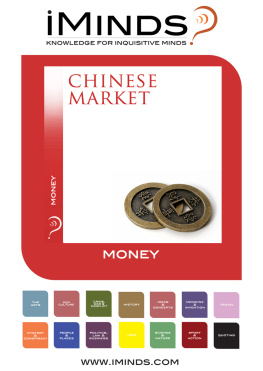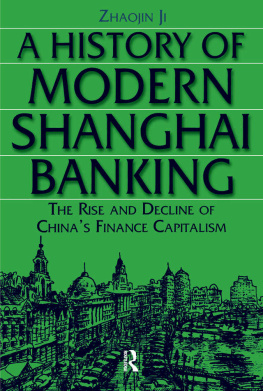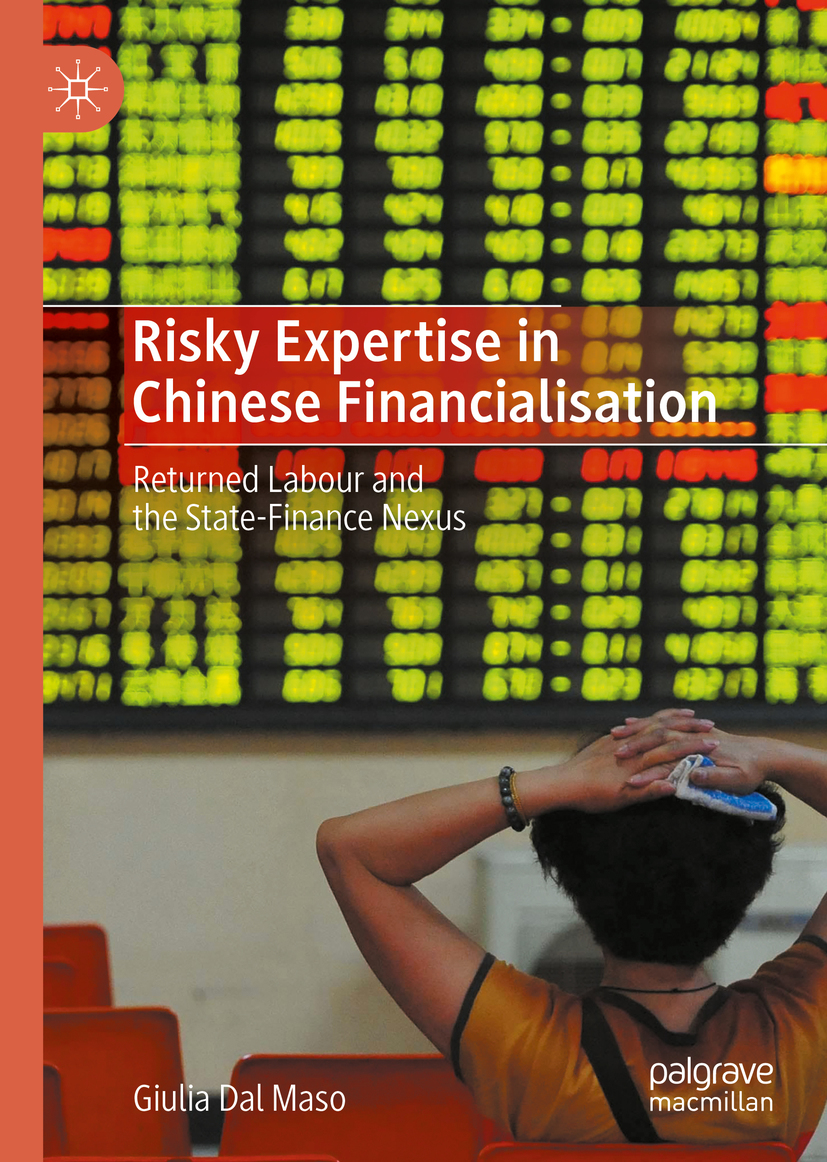Giulia Dal Maso
Risky Expertise in Chinese Financialisation
Returned Labour and the State-Finance Nexus
1st ed. 2020
Giulia Dal Maso
Department of Cultural Heritage, University of Bologna, Bologna, Italy
ISBN 978-981-15-6823-7 e-ISBN 978-981-15-6824-4
https://doi.org/10.1007/978-981-15-6824-4
The Editor(s) (if applicable) and The Author(s), under exclusive license to Springer Nature Singapore Pte Ltd. 2020
This work is subject to copyright. All rights are solely and exclusively licensed by the Publisher, whether the whole or part of the material is concerned, specifically the rights of translation, reprinting, reuse of illustrations, recitation, broadcasting, reproduction on microfilms or in any other physical way, and transmission or information storage and retrieval, electronic adaptation, computer software, or by similar or dissimilar methodology now known or hereafter developed.
The use of general descriptive names, registered names, trademarks, service marks, etc. in this publication does not imply, even in the absence of a specific statement, that such names are exempt from the relevant protective laws and regulations and therefore free for general use.
The publisher, the authors and the editors are safe to assume that the advice and information in this book are believed to be true and accurate at the date of publication. Neither the publisher nor the authors or the editors give a warranty, expressed or implied, with respect to the material contained herein or for any errors or omissions that may have been made. The publisher remains neutral with regard to jurisdictional claims in published maps and institutional affiliations.
This Palgrave Macmillan imprint is published by the registered company Springer Nature Singapore Pte Ltd.
The registered company address is: 152 Beach Road, #21-01/04 Gateway East, Singapore 189721, Singapore
Acknowledgements
In between the writing and publishing of this book, the whole world has changed. In most recent years, many important works that I couldnt account for here have provided insightful analyses on the topic I address in this book: financialisation and its increasing role in governing the complexity of the social. Globally, the long transforming wave triggered by the great financial recession (20072009) and the subsequent austerity intervention have reshuffled the terms through which we have been used to conceive the boundaries between state and market, labour and leisure, knowledge and expertise, to a point of normalisation. In this moment hit by the COVID 19 pandemic, as the realm of the social has decreased, and spaces for actions and public debates are shrinking, financial capital is taking root more than ever, acting as unique and ubiquitous legitimising force. As demonstrated by recent top-down intervention, the ends of politics (whether attempting to address unemployment, climate change, public health) are to be achieved through financial means andno doubt this is leaving little space for public debate. The object of this book, which concerns how (financial) knowledge and labour are forged and articulated within global financial accumulation, points to a new way of exploring and critiquing the growing role of finance in governing the social and how this dynamic is at play in post-Socialist China. By seeking to transcend from a moralising lens that unconditionally condemns the realm of money as solely greedy and destructive, it considers its historical duality and plasticity and argues that, by starting to think of finance as a process of knowledge production, and thus human-made, social formation, it might be time to rethink its use and potential in tandem with a radical critique of knowledge that points to new forms of appropriation. This book does so by starting from the underexplored context of authoritarian Chinese financialisation and its everyday dimension. Through ethnographic inquiry, the book shows how it is not only time to reconsider the relationship between capital and labour, but also the emergence of new frictions between the state and the financialised subjects it fosters.
This book is made possible thanks to the extraordinary intellectual support and encouragement of my thesis supervisors, Professor Brett Neilson and Professor Ned Rossiter. They have been the best interlocutors I could hope for. My gratitude also goes to Professor Sandro Mezzadra for his intellectual generosity, guidance, and for having encouraged me many times. It is thanks to him that my Chinese adventure started. I am grateful to Giorgio Casacchia. His support has been essential both for the time of my research fieldwork and for sustenance when writing. He has not only shared his extensive knowledge of China with me but, on many occasions, also used his roman irony to downplay academic disciplinarisation and defuse my anxiety.
A special mention to my friend Braulio (Lio) Flores who passed away shortly after I left Shanghai. In the last few years the memories of our time have been the most inspiring and joyful. Lio, you are very much missed. In Shanghai, I thank Professor Li Yihai; Zhang Sen and Sun Weidi at the Shanghai Academy of Social Science; Professor Wang Xiaoming; Professor Xiao Ming; Xu Daoheng from the Shanghai University; Woo Jueren Marcello, an incredible colleague and friend; Francesca Valsecchi; Sara Ovidi; Luigi Zunarelli; and Jack Luo for their friendship and encouragement during my research. This book has also greatly benefitted from the insightful comments of Stefano Chinellato, and support of my friends Liv Hamilton, Katie Hepworth, and Theo Clark in Sydney. I am also very lucky to have benefitted from the special environment at the Institute for Culture and Society where among others Shanthi Robertson has been a very inspiring figure and from its PhD cohort. My special thanks to my comrades Mithilesh Kumar and Andrea Del Bono who began their PhDs at the same time as me and to Ilia Antenucci Tsvetelina Hristova, Andrea Pollio, Oznur Sahin for their friendship. Big thanks to all the fioi in Venice for always being there, like brothers and sisters. To my mum, an extraordinary woman. Last but not least, to Matt for his love, enthusiasm, and tenacity.
Statement of Authentication
The work presented in this book is, to the best of my knowledge and belief, original except as acknowledged in the text. I hereby declare that I have not submitted this material, either in full or in part, for a degree at any institution. Sections of Chaps.
Abbreviations
ACAA
Australia China Alumni Association
CASS
Chinese Academy of Social Science
CBRC
China Banking Regulatory Commission
CCP
Chinese Communist Party
CIC
China Investment Corporation
CITIC
China International Trust and Investment Corporation
CPPCC
Chinese Peoples Political Consultative Conference
CSRC
China Securities Regulatory Commission
GFC
Global Financial Crisis
HFT
High-Frequency Trading
IMF
International Monetary Fund
MOE
Ministry of Education
MOF
Ministry of Finance
OECD
Organisation for Economic Co-operation and Development
SEZs
Special Economic Zones
SMEs
Small- and Medium-Sized Enterprises
SOEs
State-Owned Enterprises
UFWD
United Front Work Department of the Central Committee of the Communist Party of China

